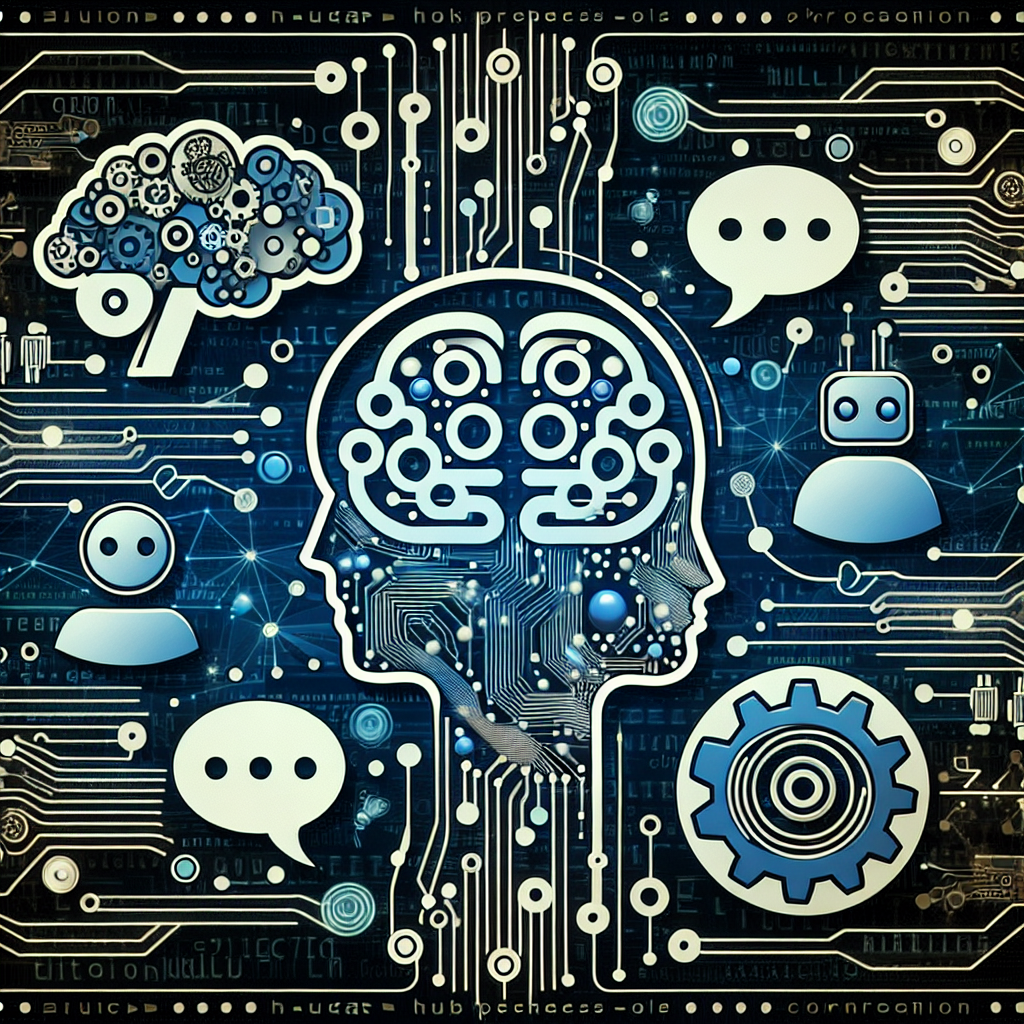Natural Language Processing (NLP) is a branch of artificial intelligence that focuses on the interaction between computers and humans using natural language. It is a key technology in the development of chatbots, which are computer programs designed to simulate conversation with human users. NLP enables chatbots to understand and respond to human language in a way that feels natural and intuitive.
NLP for chatbots involves several key components, including text processing, language understanding, and language generation. Text processing involves breaking down the input text into its constituent parts, such as words and sentences, and identifying the meaning and context of each part. Language understanding involves analyzing the input text to extract the intent and meaning behind the words, while language generation involves crafting a response that is coherent and relevant to the input.
One of the most important aspects of NLP for chatbots is natural language understanding (NLU). NLU involves parsing and interpreting human language in order to extract the meaning and intent behind the words. This is done through a combination of techniques, such as semantic analysis, sentiment analysis, and entity recognition. By understanding the context and intent of the user’s input, chatbots can provide more accurate and relevant responses.
Another key component of NLP for chatbots is natural language generation (NLG). NLG involves creating responses that are coherent and natural-sounding, based on the input text and the context of the conversation. This involves generating text that is grammatically correct, culturally appropriate, and contextually relevant. By using NLG, chatbots can provide responses that feel more human-like and engaging to users.
NLP for chatbots is a rapidly evolving field, with new advancements and techniques being developed all the time. Some of the latest trends in NLP for chatbots include the use of deep learning techniques, such as neural networks, to improve the accuracy and performance of chatbots. Deep learning algorithms can analyze large amounts of data to identify patterns and relationships between words, enabling chatbots to better understand and respond to human language.
One of the key benefits of NLP for chatbots is its ability to improve the user experience. By enabling chatbots to understand and respond to natural language, NLP makes interactions with chatbots feel more intuitive and seamless. This can help to increase user engagement and satisfaction, as users are able to communicate with chatbots in a way that feels more like talking to a real person.
Additionally, NLP for chatbots can help to improve the efficiency and effectiveness of customer service. By automating routine interactions and inquiries, chatbots can help to reduce the workload on human agents and provide faster and more consistent responses to users. This can help to improve customer satisfaction and reduce response times, leading to a more positive overall experience for users.
FAQs:
Q: How does NLP work for chatbots?
A: NLP for chatbots involves several key components, including text processing, language understanding, and language generation. Text processing involves breaking down the input text into its constituent parts, such as words and sentences, and identifying the meaning and context of each part. Language understanding involves analyzing the input text to extract the intent and meaning behind the words, while language generation involves crafting a response that is coherent and relevant to the input.
Q: What are some of the latest trends in NLP for chatbots?
A: Some of the latest trends in NLP for chatbots include the use of deep learning techniques, such as neural networks, to improve the accuracy and performance of chatbots. Deep learning algorithms can analyze large amounts of data to identify patterns and relationships between words, enabling chatbots to better understand and respond to human language.
Q: How can NLP improve the user experience with chatbots?
A: By enabling chatbots to understand and respond to natural language, NLP makes interactions with chatbots feel more intuitive and seamless. This can help to increase user engagement and satisfaction, as users are able to communicate with chatbots in a way that feels more like talking to a real person.
Q: How can NLP for chatbots help with customer service?
A: NLP for chatbots can help to improve the efficiency and effectiveness of customer service by automating routine interactions and inquiries. Chatbots can help to reduce the workload on human agents and provide faster and more consistent responses to users, leading to a more positive overall experience for users.

